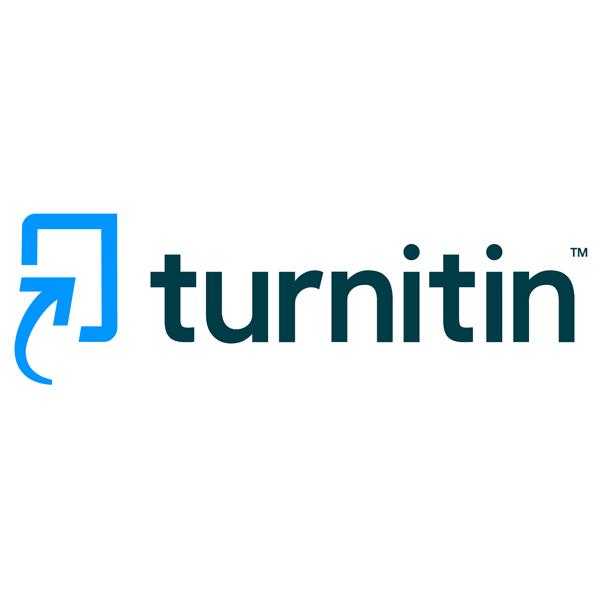
Addressing the growing impact of AI on assessments and academic integrity

As the influence of AI grows, universities face a pivotal decision: prohibit its use to protect academic integrity or adopt it to fuel innovation. A round table discussion, held in partnership with Turnitin at the 2024 THE Digital Universities UK event, invited academics from UK universities to share their experiences and approaches to AI and assessments.
“AI has prompted changes that should have happened a long time ago,” said Lisa Harris, director of digital learning at the University of Exeter. It offers an opportunity to refine the assessment formats that are not effective or useful, said Harris.
Rebecca Page-Tickell, director of education and experience at the University of East London, said the university is embracing AI to enhance assessments. “It’s important to us because we are a widening participation institution,” said Page-Tickell. The capacity to access workplace experience is one of the main barriers to success for many students, and making assessments a proxy for this experience gives them an advantage, she said.
Ruth Grindey, who is the director of digital learning and engagement at the University College of Estate Management (UCEM), said the university is focusing on upskilling staff to keep pace with the advancements in AI. Learning designers and academics at UCEM are working together to ensure consistency in assessment rubrics and to integrate new skills such as prompt engineering and Python into assessment frameworks.
Jon Tucker, chief technology officer at the University of Warwick, said that adopting AI effectively and creatively would help institutions maintain their competitive edge. “We tailor what our students are being assessed on to be relevant,” said Tucker. The university takes the lead from employers and students on what assessments should focus on. “Assessment is a good way of measuring whether we are doing something relevant and doing it well.”
Ciska Cockrell, head of digital education at Heriot-Watt University, said that universities need to move beyond the fear of academic misconduct and focus on integrating AI skills into learning and assessments. “Our focus at Heriot-Watt University is to embrace AI, but cautiously,” she said. However, she stressed that universities must equip students with AI skills in order to best prepare them for the workplace. “If we are not enabling students, we are putting them at a disadvantage,” she added.
The University of Sheffield has established an AI working group to identify opportunities for embedded assessments and skills training, said Vicky Brown, digital learning manager at the university. Sean Pryor, head of distance learning at the University of Huddersfield, said that using AI for grading and assessment is still very new for many academics. The university is currently using a traffic light system to communicate to students the degree of AI use permitted or encouraged in assessments for different modules.
Namrata Nanda, senior product marketing manager at Turnitin explored the value of offering students a writing platform that allows educators to track the development of their writing. This feature would empower educators to assess originality without having to overhaul assessments. The panel agreed that being able to track students’ writing and assessment challenges in real time could be useful in initiating a formative conversation among cohorts. This will encourage a more proactive approach to academic integrity, shifting focus from merely detecting misconduct after students have submitted their work.
Turnitin’s Feedback Studio helps to streamline assessment and feedback processes through features such as similarity report, automatic detection of text manipulation and a library of drag-and-drop comments for feedback. It helps to standardise grading using rubrics and grading forms and improve student writing by enabling educators to provide quick feedback to students directly within their assessments.
Rachel Ager, digital learning facilitator at Regents Theological College, said that introducing reflective elements into assessments will be crucial to the successful integration of AI in academia. She added that providing clear guidelines on how students can and cannot use AI has been effective at her institution.
“The real challenges are in the implementation of these principles,” said Roger Rees, digital learning projects manager at the University of Surrey. Developing principles on both disciplinary literacy and AI literacy is important in forging a way forward, he said.
The panel:
- Rachel Ager, digital learning facilitator, Regents Theological College
- Vicky Brown, digital learning manager, University of Sheffield
- James Bingham, head of IT partnering for education, University of Bristol
- Ciska Cockrell, head of digital education, Heriot-Watt University
- Stuart Edwards, dean of global and educational development, Newcastle University
- Ruth Grindey, director of digital learning and engagement, University College of Estate Management
- Lisa Harris, director of digital learning, University of Exeter
- David Kennedy, dean of digital education, Newcastle University
- Sebastien Marciak, learning innovation officer, University of Glasgow
- Namrata Nanda, senior product marketing manager, Turnitin
- Richard Osborne, faculty learning technology lead, University College London
- Rebecca Page-Tickell, director of education and experience, University of East London
- Sean Pryor, head of distance learning, University of Huddersfield
- Roger Rees, digital learning projects manager, University of Surrey
- Kate Richardson, education development manager (technology), University of Sheffield
- Sreethu Sajeev, deputy editor for branded content, Times Higher Education (chair)
- Jon Tucker, chief technology officer, University of Warwick
- Matthew Williamson, head of the Centre for Excellence in Learning and Teaching, University of East London
Find out more about Turnitin.

